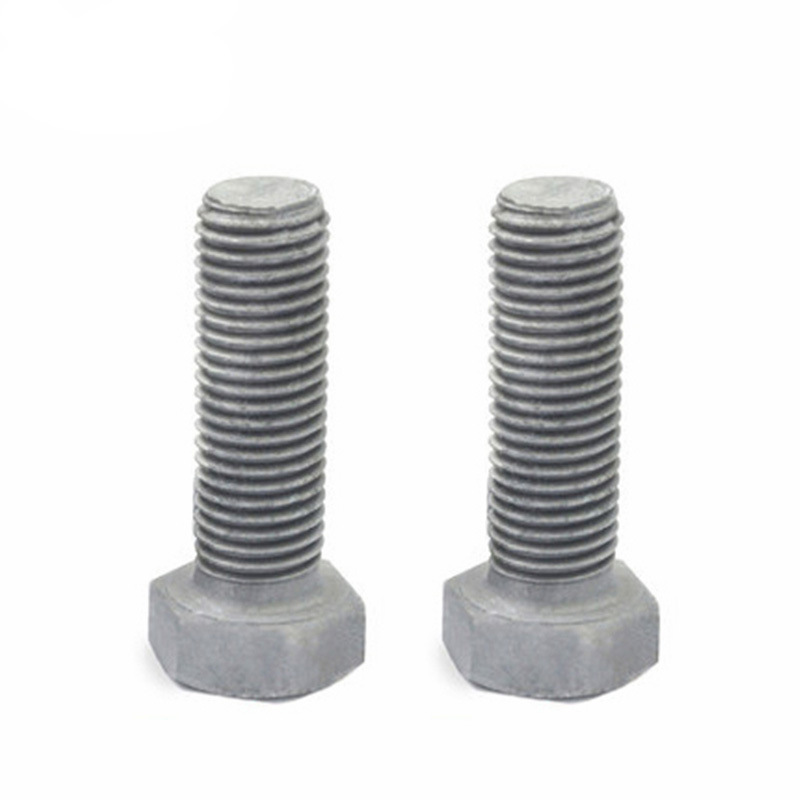

self tapping screws for aluminum
окт. . 11, 2024 18:57 Back to list
self tapping screws for aluminum
The Essential Guide to Self-Tapping Screws for Aluminum Applications
When it comes to fastening materials like aluminum, choosing the right screw is crucial. Among the many options available, self-tapping screws have gained popularity due to their ease of use and efficiency. This article provides an in-depth look at self-tapping screws for aluminum, addressing their benefits, types, applications, and installation tips.
Understanding Self-Tapping Screws
Self-tapping screws are designed to tap their own hole as they are driven into materials. This unique feature eliminates the need for pre-drilling, making them ideal for projects where speed and ease of installation are essential. They are particularly beneficial when working with softer materials like aluminum, where precision and reduced risk of damage are vital.
Benefits of Self-Tapping Screws for Aluminum
1. Speed of Installation One of the primary advantages of self-tapping screws is the ability to speed up the installation process. Traditonal screws often require a pilot hole, which can be time-consuming. Self-tapping screws bypass this step, allowing for quick assembly and productivity on the job.
2. Cost-Effective By reducing the need for pre-drilling, self-tapping screws can lower labor costs and save on tooling expenses. This efficiency can be especially beneficial for large projects where numerous fasteners are required.
3. Versatility Self-tapping screws come in various styles and sizes, allowing them to be used for a wide range of applications. Users can choose the type of head, material, and finish based on their specific project needs.
4. Enhanced Holding Power The threads of a self-tapping screw are designed to create strong mechanical interlocks with the material being fastened. This promotes a secure hold in aluminum, which can be porous and prone to deformation under strain.
Types of Self-Tapping Screws
There are two main types of self-tapping screws you might consider for aluminum
1. Thread-Forming Screws These screws create a thread in the material as they are installed and are ideal for softer materials like aluminum. They do not require a pilot hole if the material can deform, making them convenient for quick installations.
2. Thread-Cutting Screws Designed for harder materials, thread-cutting screws have sharper edges and are meant to cut a path in non-deformable materials. For aluminum, these might be used in specific situations requiring enhanced strength.
self tapping screws for aluminum

Applications of Self-Tapping Screws in Aluminum
Self-tapping screws are widely used across various industries. Some common applications include
- Automotive In the automotive sector, self-tapping screws are used for assembling aluminum panels, brackets, and components lightweight yet durable. - Construction Builders often use these screws for structural applications, such as attaching aluminum framing or cladding to buildings, where they provide strength without the weight of traditional fasteners.
- Manufacturing Many manufacturing processes rely on self-tapping screws for assembling aluminum parts in appliances, tools, and machinery, where speed and reliability are paramount.
Installation Tips
To get the best results when using self-tapping screws in aluminum, consider the following installation tips
1. Choose the Right Screw Select a self-tapping screw that is specifically designed for aluminum. Pay attention to the size, thickness, and thread type to ensure compatibility with your project.
2. Use the Appropriate Tool A power drill or screwdriver with adjustable torque settings is recommended. This helps prevent overtightening, which can strip the material or break the screw.
3. Maintain Consistent Pressure When driving the screw into the aluminum, apply steady pressure to ensure the threads properly engage and form a secure bond without damaging the material.
4. Don’t Overdo It Pay attention to the resistance felt while driving the screw. If you encounter excessive resistance, it may indicate that you’ve reached the material’s limit, and further pressure could cause damage.
Conclusion
Self-tapping screws are an excellent choice for fastening aluminum components due to their speed, convenience, and strong hold. By understanding the different types available and following best installation practices, you can achieve efficient and durable results in your projects. Consider incorporating self-tapping screws into your next aluminum assembly for a straightforward solution that doesn’t compromise quality.
Latest news
-
Premium Self Tapping Metal Screws: Strong & Easy Install
NewsAug.02,2025
-
Premium Fasteners Manufacturer | AI-Driven Solutions
NewsAug.01,2025
-
Hot Dip Galvanized Bolts - Hebei Longze | High Strength, Corrosion Resistance
NewsAug.01,2025
-
High-Strength Hot Dip Galvanized Bolts - LongZe | Corrosion Resistance, Custom Sizes
NewsAug.01,2025
-
Best Self Tapping Screws for Drywall - Fast & Secure Installation
NewsJul.31,2025
-
High-Strength Hot Dip Galvanized Bolts-Hebei Longze|Corrosion Resistance&Customization
NewsJul.31,2025

